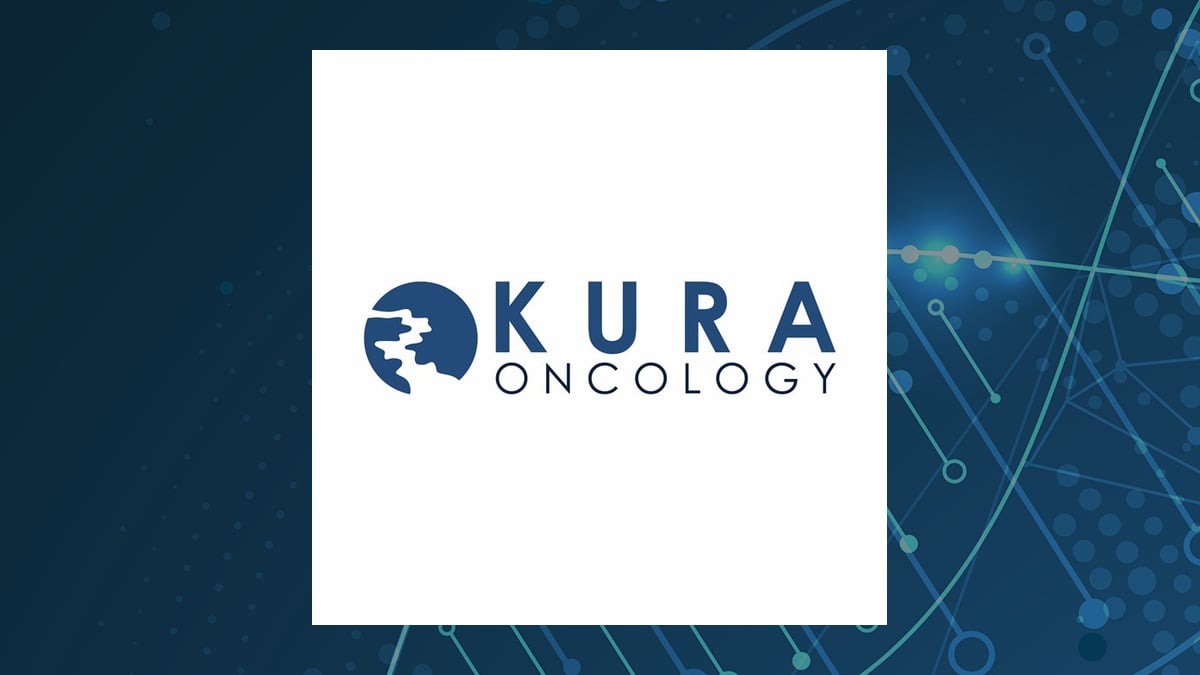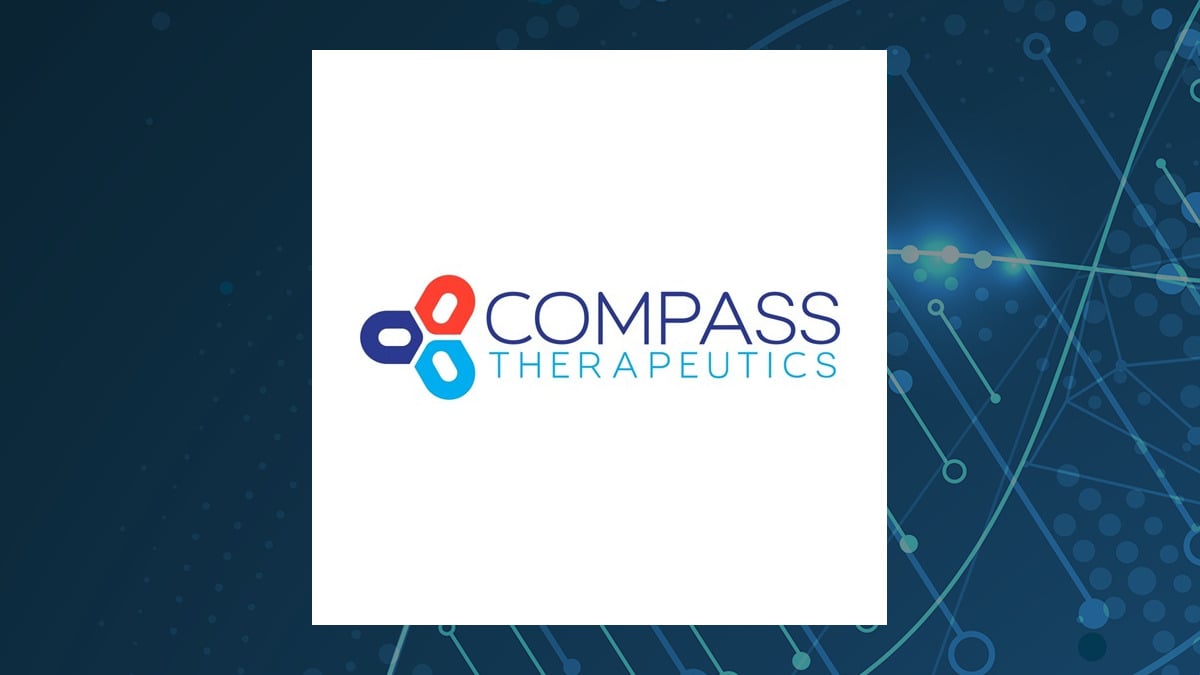Kura Oncology (NASDAQ:KURA – Get Free Report) and Compass Therapeutics (NASDAQ:CMPX – Get Free Report) are both small-cap medical companies, but which is the superior investment? We will compare the two companies based on the strength of their profitability, earnings, risk, institutional ownership, valuation, analyst recommendations and dividends.
Profitability
This table compares Kura Oncology and Compass Therapeutics’ net margins, return on equity and return on assets.
| Net Margins | Return on Equity | Return on Assets | |
| Kura Oncology | -208.48% | -65.42% | -30.59% |
| Compass Therapeutics | N/A | -48.89% | -42.47% |
Analyst Ratings
This is a breakdown of recent recommendations and price targets for Kura Oncology and Compass Therapeutics, as reported by MarketBeat.
| Sell Ratings | Hold Ratings | Buy Ratings | Strong Buy Ratings | Rating Score | |
| Kura Oncology | 1 | 4 | 7 | 0 | 2.50 |
| Compass Therapeutics | 1 | 0 | 9 | 1 | 2.91 |
Earnings & Valuation
This table compares Kura Oncology and Compass Therapeutics”s gross revenue, earnings per share and valuation.
| Gross Revenue | Price/Sales Ratio | Net Income | Earnings Per Share | Price/Earnings Ratio | |
| Kura Oncology | $53.88 million | 18.94 | -$173.98 million | ($2.48) | -4.73 |
| Compass Therapeutics | $850,000.00 | 1,035.77 | -$49.38 million | ($0.45) | -11.00 |
Compass Therapeutics has lower revenue, but higher earnings than Kura Oncology. Compass Therapeutics is trading at a lower price-to-earnings ratio than Kura Oncology, indicating that it is currently the more affordable of the two stocks.
Risk and Volatility
Kura Oncology has a beta of 0.34, meaning that its share price is 66% less volatile than the S&P 500. Comparatively, Compass Therapeutics has a beta of 1.48, meaning that its share price is 48% more volatile than the S&P 500.
Institutional and Insider Ownership
68.4% of Compass Therapeutics shares are held by institutional investors. 6.4% of Kura Oncology shares are held by insiders. Comparatively, 29.8% of Compass Therapeutics shares are held by insiders. Strong institutional ownership is an indication that endowments, hedge funds and large money managers believe a company will outperform the market over the long term.
Summary
Compass Therapeutics beats Kura Oncology on 12 of the 15 factors compared between the two stocks.
About Kura Oncology
 Kura Oncology, Inc., a clinical-stage biopharmaceutical company, develops medicines for the treatment of cancer. The company’s pipeline consists of small molecule product candidates that target cancer. Its lead product candidates are ziftomenib, an orally bioavailable small molecule inhibitor of the menin-KMT2A interaction for the treatment of genetically defined subsets of acute leukemias, including acute myeloid leukemia and acute lymphoblastic leukemia; tipifarnib, an orally bioavailable farnesyl transferase inhibitor combination with alpelisib for patients with PIK3CA-dependent HNSCC; and KO-2806, a farnesyl transferase inhibitor for the treatment of solid tumors. It has a clinical collaboration with Novartis Pharma AG to evaluate the combination of tipifarnib and alpelisib in patients with head and neck squamous cell carcinoma whose tumors have HRAS overexpression and/or PIK3CA mutation and/or amplification. The company was founded in 2014 and is headquartered in San Diego, California.
Kura Oncology, Inc., a clinical-stage biopharmaceutical company, develops medicines for the treatment of cancer. The company’s pipeline consists of small molecule product candidates that target cancer. Its lead product candidates are ziftomenib, an orally bioavailable small molecule inhibitor of the menin-KMT2A interaction for the treatment of genetically defined subsets of acute leukemias, including acute myeloid leukemia and acute lymphoblastic leukemia; tipifarnib, an orally bioavailable farnesyl transferase inhibitor combination with alpelisib for patients with PIK3CA-dependent HNSCC; and KO-2806, a farnesyl transferase inhibitor for the treatment of solid tumors. It has a clinical collaboration with Novartis Pharma AG to evaluate the combination of tipifarnib and alpelisib in patients with head and neck squamous cell carcinoma whose tumors have HRAS overexpression and/or PIK3CA mutation and/or amplification. The company was founded in 2014 and is headquartered in San Diego, California.
About Compass Therapeutics
 Compass Therapeutics, Inc., a clinical-stage oncology-focused biopharmaceutical company, engages in developing antibody-based therapeutics to treat various human diseases in the United States. The company's lead product candidates include CTX-009, a bispecific antibody that blocks Delta-like ligand 4 a ligand of Notch-1, and vascular endothelial growth factor A signaling pathways, which are critical to angiogenesis and tumor vascularization; and CTX-471, an IgG4 monoclonal antibody that is an agonist of CD137, a key co-stimulatory receptor on immune cells. It also develops CTX-8371, a bispecific inhibitor that targets PD-1 and PD-L1 checkpoint inhibitor antibodies. The company was founded in 2014 and is headquartered in Boston, Massachusetts.
Compass Therapeutics, Inc., a clinical-stage oncology-focused biopharmaceutical company, engages in developing antibody-based therapeutics to treat various human diseases in the United States. The company's lead product candidates include CTX-009, a bispecific antibody that blocks Delta-like ligand 4 a ligand of Notch-1, and vascular endothelial growth factor A signaling pathways, which are critical to angiogenesis and tumor vascularization; and CTX-471, an IgG4 monoclonal antibody that is an agonist of CD137, a key co-stimulatory receptor on immune cells. It also develops CTX-8371, a bispecific inhibitor that targets PD-1 and PD-L1 checkpoint inhibitor antibodies. The company was founded in 2014 and is headquartered in Boston, Massachusetts.
Receive News & Ratings for Kura Oncology Daily - Enter your email address below to receive a concise daily summary of the latest news and analysts' ratings for Kura Oncology and related companies with MarketBeat.com's FREE daily email newsletter.
